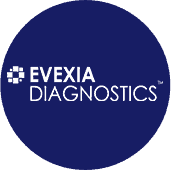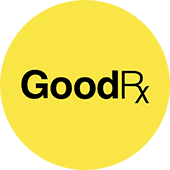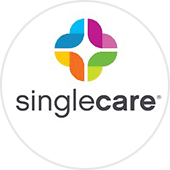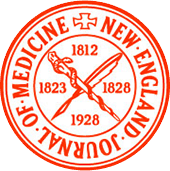Colorectal cancer is a common form of cancer, but fortunately, it can be detected early. As with most health conditions, the early detection of colorectal cancer increases your chances of beating the disease.
Most of us don’t think about colorectal health all that much. In fact, because of its situation, it might feel embarrassing to talk about colorectal issues. But learning about colorectal health and screening tests is essential – in fact, it might just save your life.
The good news is that making some healthy lifestyle changes can reduce your chances of developing colorectal cancer. And, with a few regular tests, it’s possible to detect precancerous cells and early-stage cancer.
Here’s what you need to know about colorectal cancer.
What is colorectal cancer?
Colorectal cancer starts in the lower digestive system, specifically the colon or rectum. The colon is also known as the large intestine. When left untreated, colorectal cancer may spread to other parts of the body.
This form of cancer is surprisingly common: according to The American Cancer Society (ACS), about 1 in 23 men and 1 in 25 women will develop colorectal cancer at some point during their lifetime. The Center for Disease Control (CDC) states that colorectal cancer is the second leading cause of cancer deaths in the US, with the first being lung cancer.
Early detection can increase your likelihood of survival and the good news is that a range of treatments are available.
What are the stages of colorectal cancer?
If you’re diagnosed with colorectal cancer, your doctor will probably use staging to tell you how advanced your cancer is, with stage 0 being the earliest stage and stage 4 being the most advanced.
Here’s what the stages of colorectal cancer refer to:
- Stage 0 is when abnormal cells are only found in the inner lining of the colon or rectum.
- Stage 1 is when the cancer cells have penetrated the lining. At this point, the cells might be growing into the muscle layer of the colon or rectum.
- Stage 2 is when the cancer cells have spread to the colon or rectum walls or to nearby tissues.
- Stage 3 is when the cancer has moved to the lymph nodes.
- Stage 4 is when the cancer has spread both to the lymph nodes and to other organs.
The earlier you detect colorectal cancer, the better. And treatments are generally more effective if it’s detected early.
Who is most likely to get colorectal cancer?
Anybody can get colorectal cancer, which is why it’s important to keep a look out for the signs and seek medical help if you have any worrying symptoms. However, certain people are more likely to develop colorectal cancer than others.
People are more likely to get colorectal cancer if they:
- are over 50 years old
- have a family history of colorectal cancer
- have a personal history of adenomatous polyps
- have type 2 diabetes or inflammatory bowel disorder (IBD)
- have genetic syndromes, such as Lynch syndrome
- are of African American or Ashkenazi Jewish descent
- smoke cigarettes
- drink alcohol frequently
- have a sedentary lifestyle
- consume a lot of red meat or processed meat
While you can’t change your age, family medical history, or genes, there are some steps you can take to reduce your risk of developing cancer.
Can you prevent colorectal cancer?
You can’t always prevent colorectal cancer, and some risk factors – such as your age and genetics – can’t be changed. However, research suggests that certain healthy lifestyle changes can reduce your risk of colorectal cancer.
These changes can include:
- eating less red meat and processed meats
- eating more plant-based foods
- exercising regularly
- quitting smoking
- reducing the amount of alcohol you drink
- reducing your stress levels
- getting enough sleep
The above lifestyle changes aren’t just good for preventing colorectal cancer, but for preventing a range of health conditions.
Making a lifestyle change can be difficult, but you don’t have to do it alone. If you’re a Knew Health Member, remember to take advantage of our free Health Coaching services. A Health Coach can help you set wellness goals and design a plan to reach and maintain those goals.
Signs and symptoms of colorectal cancer
Early symptoms of colorectal cancer may include:
- constipation and diarrhea
- nausea and vomiting
- unusually narrow stools
- the feeling of not being empty after a bowel movement
- rectal bleeding and blood in the stool
- black stools
- abdominal bloating and pain
- pain or pressure in the rectum
- a lump in the rectum or abdomen
- fatigue
- anemia
- weight loss
- decreased appetite
- unintentional weight loss
- bowel obstruction or bowel perforation
Many of the above symptoms might be caused by another health condition, which is why many people don’t realize they have colorectal cancer until the symptoms become quite severe. Being aware of these symptoms and seeking medical help could enable you to detect it early.
If you’re experiencing these symptoms, it’s essential to speak to your doctor. Explain when the symptom started and describe it. Be prepared to discuss your medical history and your family’s history, if your doctor isn’t yet aware of it. Discuss whether you should be screened for colorectal cancer.
How do you detect colorectal cancer early?
Although you can’t always prevent colorectal cancer, you can detect it early. Regular screening tests for colorectal cancer will help you detect colorectal cancer as soon as possible.
The screening test will include talking with your doctor about your medical history. Your doctor will perform a physical exam and possibly a rectal exam to check for lumps or polyps (both of which are early symptoms of colorectal cancer).
Precancerous polyps can be removed, thus reducing the chances of you developing full-blown cancer.
Should I get screened for colorectal cancer?
If you’re over the age of 50, groups such as The American College of Physicians and The British Medical Journal recommend regular screenings. The CDC and the American Cancer Society, however, recommends having screenings over the age of 45.
You should also have screenings if:
- You or someone you’re closely related to (a parent or sibling) have had colorectal polyps or colorectal cancer
- You have a genetic condition that makes you more likely to have colorectal cancer
- You have an inflammatory bowel disease such as Crohn’s disease or ulcerative colitis
The American College of Physicians also recommends having a colonoscopy every 10 years. They also recommend having a fecal immunochemical test (FIT) or high sensitivity guaiac-based fecal occult blood test (gFOBT) every two years.
For Knew Health Members, colonoscopies are fully eligible to share through our Medical Cost Sharing Community. We encourage our Members to get screened regularly and share these costs through Knew Health.
How is colorectal cancer treated?
Your cancer treatment plan will be developed by your doctors according to your unique situation. The location of the cancer as well as its stage will affect your treatment plan.
Your treatment plan might include one or more of the following:
- chemotherapy
- radiation therapy
- surgery
- radiofrequency ablation (also known as RFA) or cryoablation
- other targeted therapies
Certain lifestyle changes, like a change in your diet or quitting cigarettes, might also be wise. Your doctor will advise you on any lifestyle changes you need to make as well as the potential side effects of the above-mentioned treatments.
Cancer treatment can be tough, both mentally and physically, for you and your family. You and your loved ones might benefit from support groups during the treatment period.
More resources on colorectal cancer
If you want to learn more about colorectal cancer, the following resources might be helpful:
- The American Cancer Society has a section on colorectal cancer as well as other cancers
- The Colorectal Cancer Society has compiled a list of resources for patients
- Fight Colorectal Cancer is an organization that focuses on colorectal cancer advocacy
- The CDC has a list of colorectal cancer resources
- The National Cancer Institute has a range of patient resources on colorectal cancer
If you have colorectal cancer, you might benefit from looking for support groups (either online or in person). Ask your doctor if they can recommend any local support groups.
While colorectal cancer is a common condition, there are many things you can do to prevent it or detect it early. It’s also a condition that can be treated, especially if you detect it early. If you’re concerned about colorectal cancer, talk with your doctor about screening tests.
Resources
- The American Cancer Society medical and editorial content team. (2020). Colorectal cancer risk factors. cancer.org/cancer/colon-rectal-cancer/causes-risks-prevention/risk-factors.html
- The American Cancer Society Medical and Editorial Content Team. (2019). Key statistics for colorectal cancer. cancer.org/cancer/colon-rectal-cancer/about/key-statistics.html
- Colorectal cancer. (n.d.). cancer.org/cancer/colon-rectal-cancer/
- Colorectal cancer prevention (PDQ) – patient version. (2019). cancer.gov/types/colorectal/patient/colorectal-prevention-pdq
- Colorectal cancer: Screening [Final recommendation statement]. (2016). uspreventiveservicestaskforce.org/uspstf/recommendation/colorectal-cancer-screening
- Colorectal cancer: Types of treatment. (2019). cancer.net/cancer-types/colorectal-cancer/types-treatment
- Mayo Clinic Staff. (2019). Colon cancer. mayoclinic.org/diseases-conditions/colon-cancer/symptoms-causes/syc-20353669
Disclaimer: This information is being provided to you for educational and informational purposes only. It is being provided to educate you about how to take care of your body and as a self-help tool for your own use so that you can reach your own health goals. It is not intended to treat or cure any specific illness and is not to replace the guidance provided by your own medical practitioner. This information is to be used at your own risk based on your own judgment. If you suspect you have a medical problem, we urge you to take appropriate action by seeking medical attention.









































